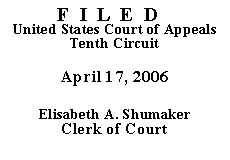

| ERNIE JOE FIELDS,
Plaintiff-Appellant, v. CORRECTIONS CORPORATION OF AMERICA, Diamondback Correctional Facility; JOEY BRADLEY, Assistant Warden, Diamondback Correctional Facility DBCF; ELVIS HIGHTOWER, Warden; PHYLLIS HANSEN, Correctional Health Services Administrator; CAPTAIN PEREZ, Chief of Security; LIEUTENANT WOOSLEY, Guard for DBCF; SERGEANT STILLWELL, Guard; B. HENDRYX, Seargent Guard; DR. AHMAD, Physician; D. GREGSON, Assistant Health Services Administrator; DR. ASH, Physician, Defendants-Appellees. |
|
Ernie Joe Fields sued under 42 U.S.C. § 1983 to redress alleged incidents of excessive force and deliberate indifference to his medical needs. After two years of litigation, generating several volumes of pleadings and documents, defendants filed a motion for summary judgment raising a number of issues and attaching some 500 pages of exhibits in addition to an extensive Martinez report. See Martinez v. Aaron, 570 F.2d 317 (10th Cir. 1978). Fields failed to file a response within the eighteen days allotted by local rule. See W.D. Okla. LCvR 7.2(f). Although the court allowed Fields an eleven-day extension, it warned that it would grant defendants' motion if he did not respond by the new deadline. When no timely response was filed, the district court deemed defendants' motion confessed and, accordingly, granted summary judgment without conducting any analysis on the merits. Fields appealed, and the district court granted his request for leave to proceed in forma pauperis.(1)
In Reed v. Nellcor Puritan Bennett, 312 F.3d 1190 (10th Cir. 2002), we held that a party's failure to respond to a summary judgment motion is not a legally sufficient basis on which to grant the motion and enter judgment against that party. We explained that:
the burden on the nonmovant to respond arises only if the summary judgment motion is properly 'supported' as required by Rule 56(c). Accordingly, summary judgment is 'appropriate' under Rule 56(e) only when the moving party has met its initial burden of production under Rule 56(c). If the evidence produced in support of the summary judgment motion does not meet this burden, 'summary judgment must be denied even if no opposing evidentiary matter is presented.' [Adickes v. S.H. Kress & Co., 398 U.S. 144, 160 (1970)] (quoting Fed. R. Civ. P. 56 advisory committee notes to the 1963 amendments) (emphasis added). If the nonmoving party fails to respond, the district court may not grant the motion without first examining the moving party's submission to determine if it has met its initial burden of demonstrating that no material issues of fact remain for trial and the moving party is entitled to judgment as a matter of law. If it has not, summary judgment is not appropriate, for '[n]o defense to an insufficient showing is required.' Id. at 161.
To summarize, a party's failure to file a response to a summary judgment motion is not, by itself, a sufficient basis on which to enter judgment against the party. The district court must make the additional determination that judgment for the moving party is 'appropriate' under Rule 56. Summary judgment is appropriate only if the moving party demonstrates that no genuine issue of material fact exists and that it is entitled to judgment as a matter of law. By failing to file a response within the time specified by the local rule, the nonmoving party waives the right to respond or to controvert the facts asserted . . . in the summary judgment motion. But only if those facts entitle the moving party to judgment as a matter of law should the court grant summary judgment.
Id. at 1194-95. In light of these established principles, the district court's ruling cannot stand on its stated rationale. Furthermore, given the multiplicity of legal issues and the voluminous evidentiary materials, none of which have been addressed by the parties on appeal, this is not an appropriate case for this court to decide summary judgment in the first instance. Rather, we follow Reed and remand the matter for consideration by the district court. See id. at 1196.
Finally, we note that the district court "has discretion to sanction a party for failing to prosecute or defend a case, or for failing to comply with local or federal procedural rules," and in proper circumstances the sanction "may include dismissing the party's case with prejudice or entering judgment against the party." Id. at 1195. But such a severe sanction is "reserved for the extreme case, and is only appropriate where a lesser sanction would not serve the ends of justice." Id. (quotation omitted). Moreover, we require the district court to address several relevant factors before it may impose such a sanction. Id. at 1195-96. None of these matters was considered by the district court as a basis for its ruling. As in Reed, we will not attempt to affirm a legally unsupported summary judgment ruling by undertaking an alternative sanctions analysis in the first instance on appeal. See id. at 1196.
The judgment of the district court is VACATED and the cause is REMANDED for further proceedings consistent with this order and judgment.
Entered for the Court
Circuit Judge
*. After examining the briefs and appellate record, this panel has determined unanimously that oral argument would not materially assist the determination of this appeal. See Fed. R. App. P. 34(a)(2); 10th Cir. R. 34.1(G). The case is therefore ordered submitted without oral argument. This order and judgment is not binding precedent, except under the doctrines of law of the case, res judicata, and collateral estoppel. The court generally disfavors the citation of orders and judgments; nevertheless, an order and judgment may be cited under the terms and conditions of 10th Cir. R. 36.3.
1. The court subsequently denied a motion for reconsideration. Fields amended his existing notice of appeal to add this post-judgment decision. See Fed. R. App. P. 4(a)(4)(B)(ii), (iii).